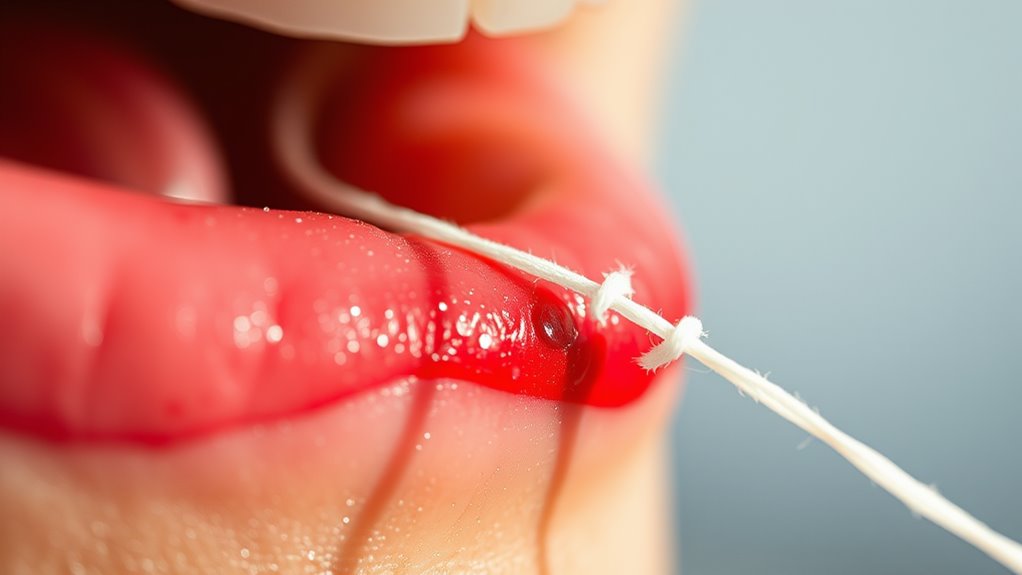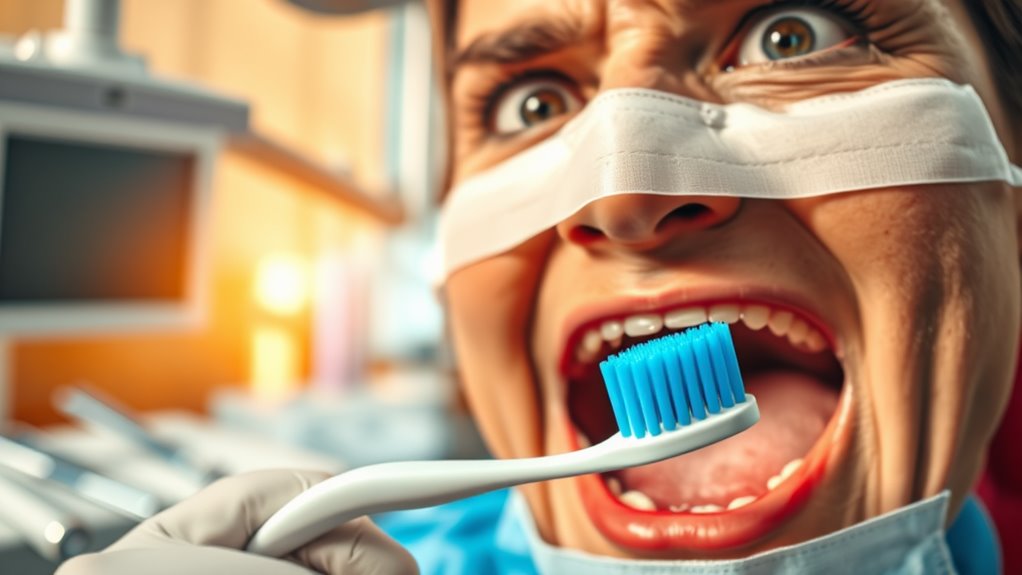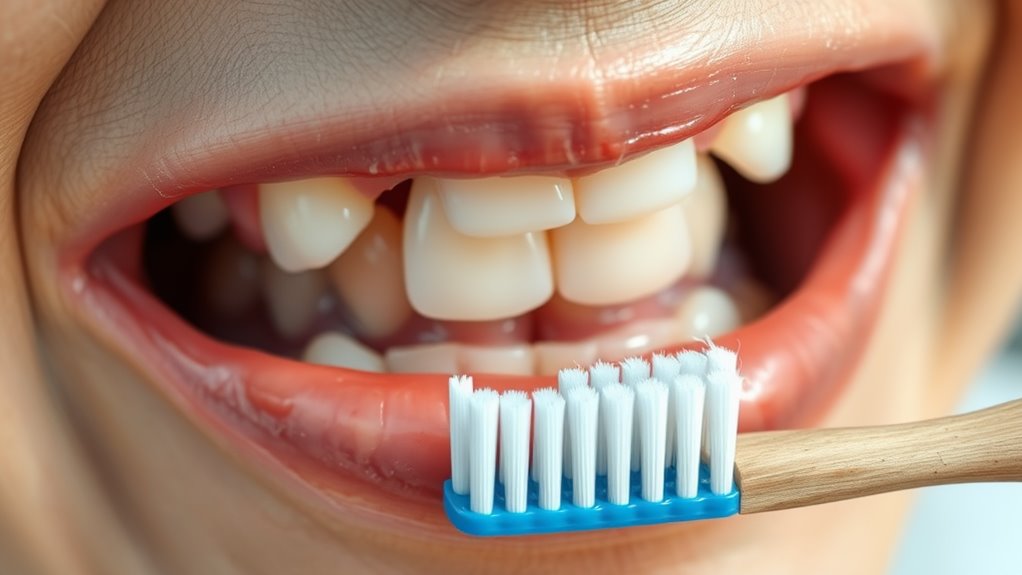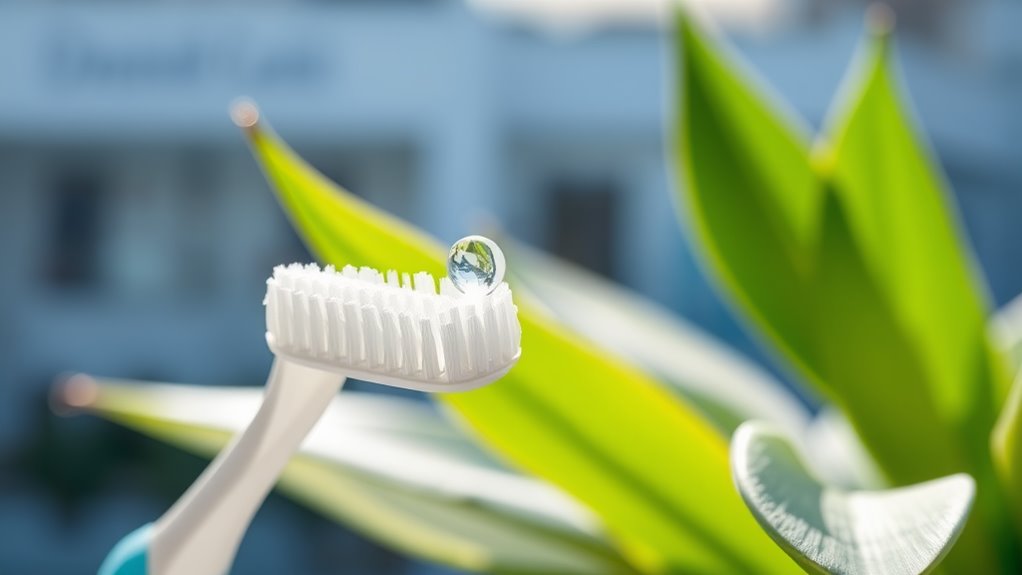Flossing Is a Scam. The Truth About Gum Health!
Flossing has been a dental hygiene staple for years, but recent studies show mixed results on its effectiveness for gum health and cavity prevention. While some experts argue it plays a role in plaque reduction, the debate over its necessity continues. It’s crucial to understand common myths that may influence your oral care routine. There are alternative tools and practices that can also support gum health, and you can explore these options to learn more about maintaining a healthy smile.
The Origins of Flossing: A Historical Perspective
Although many people today consider flossing an essential part of dental hygiene, its origins reveal a more complex history. You might be surprised to learn that the concept of cleaning between teeth dates back thousands of years.
Ancient civilizations, from the Egyptians to the Chinese, used various materials like twigs and animal sinews to maintain oral health. These early practices laid the groundwork for modern flossing.
By the early 19th century, people began using silk thread for dental cleaning. It wasn’t until the 1970s that floss became widely commercialized.
Understanding this history connects you to a broader community that values dental care’s evolution. Whether you floss daily or not, knowing where it came from highlights our shared journey toward better gum health.
Examining the Science: Do Studies Support Flossing?
As you consider the benefits of flossing for gum health, it’s essential to look at what scientific studies say about its effectiveness. Research has produced mixed results, leading to questions about flossing’s role.
Some dental experts suggest that while flossing may help reduce plaque, it often doesn’t significantly impact gum disease compared to regular brushing. Many large studies have failed to find strong evidence that flossing prevents cavities or gum issues.
This leaves you wondering—does it really matter? While some advocate for it as part of an overall oral hygiene routine, others believe it’s overrated.
Ultimately, staying informed about what truly benefits your oral health is vital; don’t hesitate to consult dental professionals for personalized advice.
Common Myths About Flossing Debunked
You might think that flossing is just a ritual or even a chore, but there are several myths surrounding its importance that need clarification.
For starters, many believe that brushing alone is enough for oral health. This isn’t true! Flossing removes debris and plaque between teeth that brushing can’t reach, reducing your risk of gum disease.
Another common myth is that flossing causes gum damage. If done gently, it promotes gum health rather than harming it.
Some might say flossing isn’t necessary if you don’t have cavities. However, prevention is key—healthy gums contribute to overall well-being.
Embracing these truths helps you feel empowered in your dental care routine and fosters a genuine connection with others who prioritize their oral health.
Alternatives to Flossing for Gum Health
While flossing is a well-known method for maintaining gum health, several effective alternatives can also help keep your gums in top shape.
One option is using an interdental brush, which can easily reach between teeth and remove stubborn plaque.
Gum stimulators are another great choice; they massage your gums and improve circulation.
Don’t forget about water flossers, as they use a gentle stream of water to clean hard-to-reach areas.
Regularly rinsing with an antibacterial mouthwash can also help keep your mouth fresh and minimize plaque buildup.
The Role of Diet in Maintaining Healthy Gums
Maintaining healthy gums goes beyond brushing and flossing; your diet plays a crucial role in their well-being. What you eat can significantly influence your gum health. Incorporating plenty of fruits and vegetables helps provide essential vitamins and minerals, especially Vitamin C, which supports gum healing.
Cutting back on sugary snacks and drinks can prevent plaque buildup and gum disease, keeping your smile vibrant. Additionally, foods rich in omega-3 fatty acids, like fish, have anti-inflammatory properties that promote gum health.
Staying hydrated is equally important, as water helps wash away food particles and bacteria. By embracing a nutrient-rich diet, you’ll not only feel great but also strengthen your gums, fostering a sense of dental pride and belonging in your community.
Importance of Regular Dental Check-ups
Regular dental check-ups are essential for catching potential issues before they escalate into serious problems.
By visiting your dentist regularly, you’re not just ensuring a radiant smile; you’re investing in your overall health.
Here’s why you shouldn’t skip those appointments:
-
Early Detection: Catch cavities or gum disease early, making treatment simpler and less costly.
-
Professional Cleaning: Even with great home care, some plaque and tartar can build up. Professional cleanings remove these, protecting your gums.
-
Personalized Advice: Your dentist can give tailored tips based on your unique needs, helping you maintain optimal oral health.
Making regular check-ups part of your routine helps you and your loved ones enjoy a lifetime of good oral health together.
Innovative Tools for Effective Oral Hygiene
As new research continues to emerge, innovative tools for effective oral hygiene are transforming how you care for your teeth and gums.
From electric toothbrushes that adapt to your brushing style to water flossers that reach those tricky spots, the options are exciting and user-friendly.
Have you tried smart toothbrushes that track your brushing habits and provide real-time feedback? They not only make brushing fun but also help you improve your technique, ensuring a brighter smile.
Plus, there’s dental-foam alternatives that freshen breath while battling plaque, catering to your lifestyle needs.
Embracing these tools creates a supportive environment for your oral health, allowing you to feel connected to a community that values a radiant, healthy smile.
Understanding Gum Disease: Prevention and Treatment Options
Gum disease, often lurking without noticeable symptoms, can lead to serious oral health issues if left untreated. To protect your gums, it’s essential to prioritize prevention and be aware of treatment options.
Here are three key steps you can take:
-
Regular Dental Check-ups: Scheduling routine cleanings allows your dentist to catch early signs of gum disease.
-
Daily Oral Hygiene: Brushing twice a day and using antimicrobial mouthwash can significantly reduce plaque buildup.
-
Healthy Lifestyle Choices: A balanced diet and quitting smoking can boost your overall gum health.
Being proactive about your gum health fosters not only a beautiful smile but also a sense of community with those who care about their oral wellness just like you.




